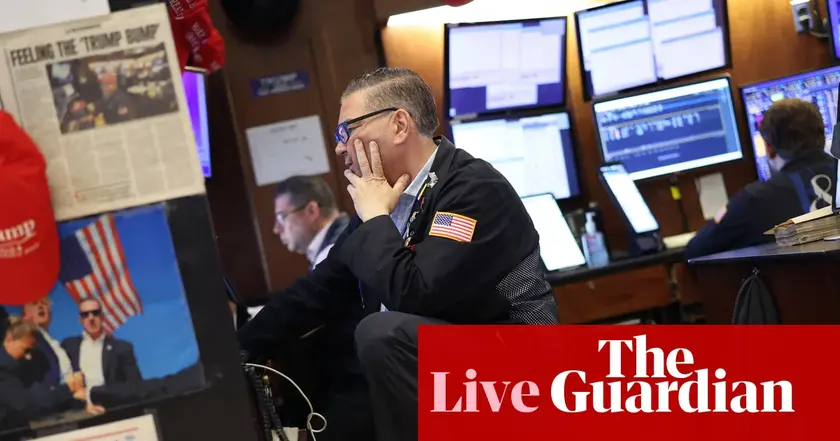T4K3.news
Labor market shows staying power amid uncertainty
A stagnant market keeps workers in place, but discontent could trigger a wave of resignations when conditions improve.

A stagnant labor market keeps workers in place while discontent rises, signaling a potential wave of resignations when conditions improve.
Workers cling to jobs in stagnant market as resentment grows leading to a coming Great Resignation looms
A stagnant labor market is pushing workers to stay in their current roles, a practice some call job hugging. Consultants warn this restraint can breed anxiety and resentment toward employers, even as it tempers turnover in the near term. Korn Ferry notes workers fear they would struggle to find a new position if they quit, while Eagle Hill Consulting’s retention index shows more people plan to stay over the next six months. July payrolls expanded by 73,000, with a three-month average of about 35,000, underscoring a fragile, low-growth labor environment.
Yet the mood inside many workplaces remains tense. A Glassdoor report from November 2024 found that 65 percent of workers feel stuck in their roles, with higher figures in tech. The rise of frequent management changes—CEO turnover up 12 percent from 2024 to 2025—adds to a sense of disconnection from a shared company vision. Some leaders still spark hope when they bring in new direction, but the overall vibe is one of fatigue and uncertain prospects. Gallup estimates that disengagement cost the global economy about 438 billion dollars in 2024, highlighting the cost of inaction on the people side of business.
Key Takeaways
"No one is wanting to leave unless they’re very unhappy in their job"
Stacy DeCesaro on staying despite market doubts
"Once the market improves, I think it’s going to be super active"
DeCesaro predicting a rebound in resignations
"It’s going to be a fruit basket turnover of talent"
DeCesaro describing talent movements
"Quiet quitting trends are resonating now"
Daniel Zhao on disengagement signals
The trend shows a paradox: workers protect their current jobs even as they grow more anxious and less engaged. If leaders want to avoid a fresh wave of departures, they must transform the stay into a real opportunity—open channels for feedback, consistent communication, and visible investment in career growth. The risk is that a protracted stay without improvement becomes a silent resignation to a stagnant culture. When markets recover, pent-up desire to change jobs could explode into a new Great Resignation unless firms act now. Remote work options, clearer paths to advancement, and steady leadership may become the new levers of retention in an uncertain economy.
Highlights
- No one leaves a job unless they’re very unhappy
- Once the market improves, I think it’s going to be super active
- It’s going to be a fruit basket turnover of talent
- Quiet quitting trends are resonating now
Economy and workforce risk from prolonged retention
The article ties prolonged retention to potential future backlash if market conditions improve and workers decide to quit. Investor caution may rise as private equity funding slows and tariff-related uncertainty adds policy risk. Employers face pressure to address morale and engagement or risk a sharper churn when opportunities reappear.
The path forward lies in listening closely and acting decisively before a sudden exit rush reshapes the job market.
Enjoyed this? Let your friends know!
Related News

Thames Water contingency plans approved

Wholesale inflation climbs in July amid tariffs

July retail sales show resilience amid price pressure

Trump calls for Fed to lower rates amid leadership changes

Mortgage rates ease again

Weak jobs report reveals economic concerns

Fed signals eyed at Jackson Hole

Fed official leans toward three rate cuts this year
